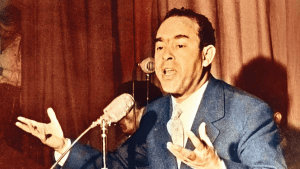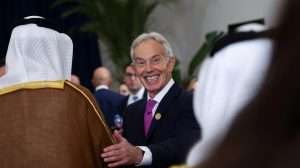Why does Azerbaijan stand by Israel as others turn away?
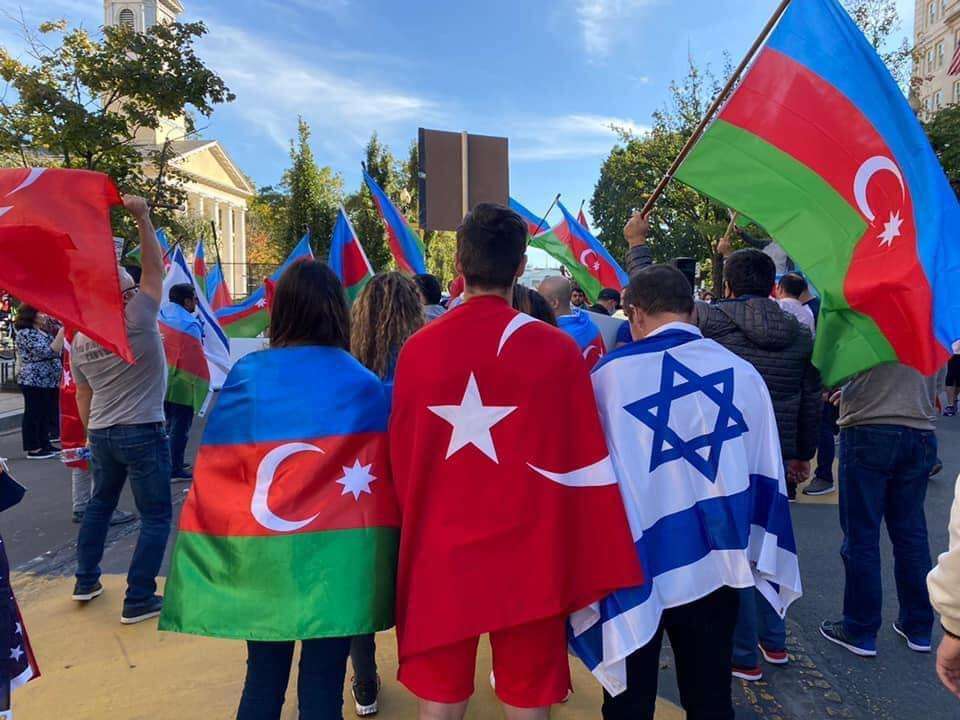
Azerbaijan has not only ended decades of war with Armenia, but by signing a peace deal in Washington, it has positioned itself as a rare Muslim-majority state deepening ties with Israel while much of the world turns away. But what does it mean when reconciliation with an old enemy becomes the backdrop for one of the most unusual alliances sustaining an ever-growing international outsider?
International attention remains centred on Gaza, where Israeli military operations and siege tactics have created mass displacement, famine conditions, and repeated evacuation orders. UN-backed experts recently declared a “man-made” famine in Gaza, and humanitarian agencies have documented widespread civilian suffering.
This intense focus on Gaza has overshadowed another crisis. In Nagorno-Karabakh, Azerbaijan’s military victory forced more than 100,000 ethnic Armenians to leave the enclave in what human rights groups and the Armenian Prime Minister, Nikol Pashinyan, described as a campaign of “ethnic cleansing.” Reports confirm that the population fled in fear of reprisals and systematic discrimination after Azerbaijan reasserted full control of the region.
The International Court of Justice allowed cases against Azerbaijan to proceed in November 2024, recognising that claims of discrimination against Armenians warrant further examination. Armenia has also filed charges accusing Azerbaijan of committing genocide, which remains under legal review but has gained traction in international legal debates.
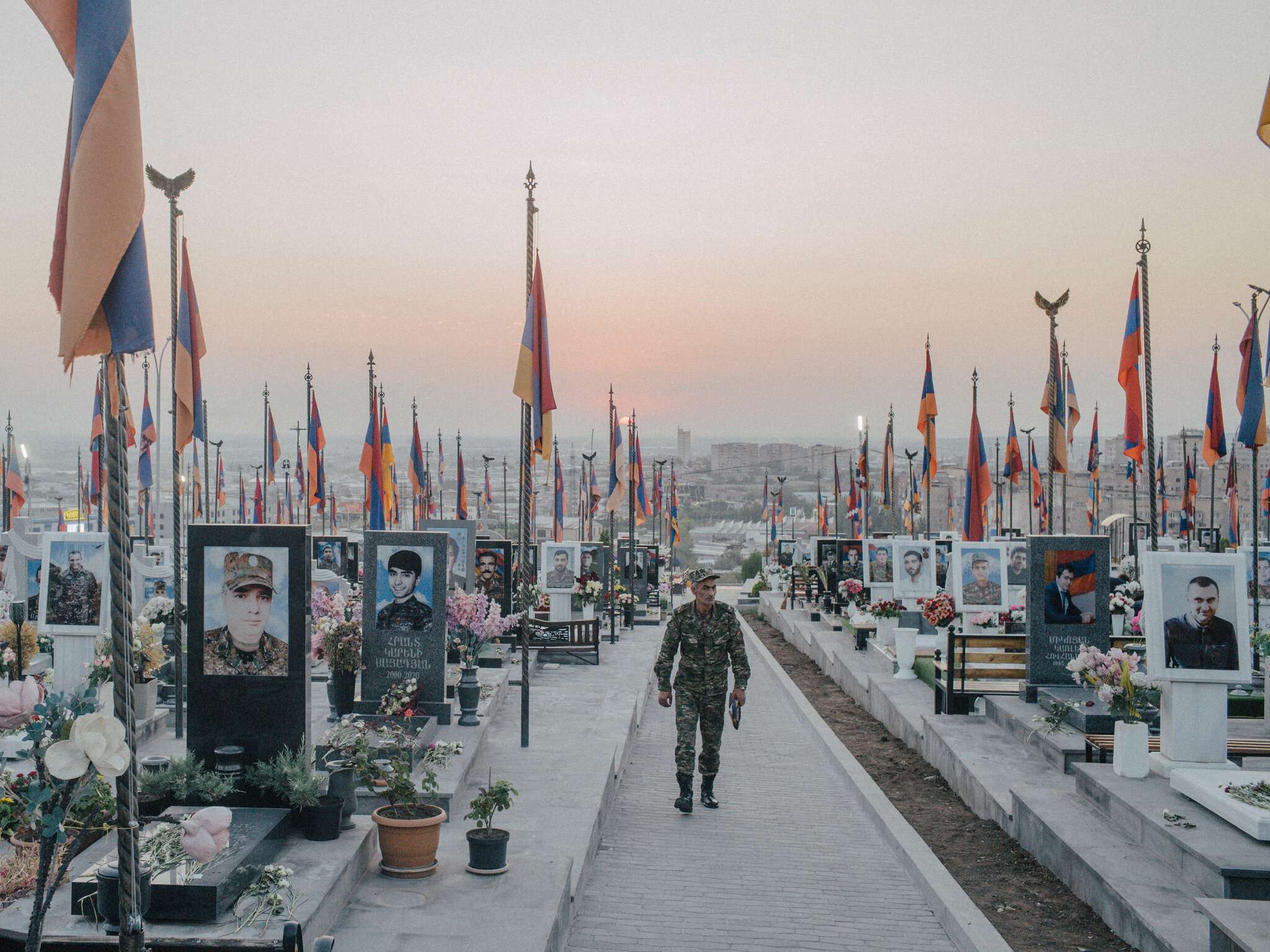
Onlookers note that parallels exist between the two conflicts. In both Gaza and Nagorno-Karabakh, mass civilian displacement, food insecurity, and the systematic targeting of vulnerable populations define the crises. In each case, accusations of genocide dominate the discourse and legal proceedings, yet international attention is applied unevenly. Media and diplomatic pressure concentrates on Israel, while Azerbaijan’s actions pass with less scrutiny despite their severity.
This disparity raises the central paradox of Azerbaijan’s position in global politics. As a Muslim-majority state, allied closely with Turkey, Azerbaijan continues to strengthen ties with Israel at the very moment when most Muslim nations advocate for Palestinian rights and challenge Israel’s actions in Gaza. That alliance sets the stage for examining how strategic interests override religious solidarity in Baku’s foreign policy.
A strategic alliance
Azerbaijan sustains its relationship with Israel through material exchange and mutual strategic interests. The country supplies almost 40 percent of Israel’s crude oil through the Baku–Tbilisi–Ceyhan pipeline, securing a critical energy lifeline for Tel Aviv. Israel, in turn, equips Azerbaijan with advanced weaponry, including drones, air defence systems, and precision munitions. During the wars over Nagorno-Karabakh, Israeli-made drones played a decisive role in Azerbaijan’s battlefield success, demonstrating the tangible benefits of this alliance.
These transactions extend beyond commercial logic. Both states identify Iran as a security threat, albeit for different reasons. Azerbaijan borders Iran and views Tehran as a destabilising actor that seeks to influence its Shia majority. Israel regards Iran as its most significant regional adversary due to Tehran’s nuclear ambitions and support for armed groups that are hostile to Israel. This shared perception of danger strengthens coordination between Baku and Tel Aviv, particularly in intelligence and security matters.
The relationship has also produced visible diplomatic shifts. Baku opened an embassy in Israel in 2023, decades after establishing official ties, signalling a willingness to formalise and display what had long been a discreet partnership. Analysts interpret this move as an attempt by Azerbaijan to project itself as a reliable partner in a volatile region, differentiating itself from neighbouring states that maintain adversarial stances towards Israel.
This pattern of cooperation illustrates how Azerbaijan frames its foreign policy through pragmatism. By supplying oil, importing arms, and sharing intelligence, Baku integrates itself into Israel’s security architecture. In return, Israel gains a Muslim-majority ally on Iran’s northern border, one that simultaneously weakens Tehran’s influence and ensures continuity of vital energy flows. The result is a partnership grounded not in ideology but in survival, strategy, and mutual leverage.
Paradox of faith
The UK, France, and Canada all signalled their intentions to recognise a Palestinian state, aligning themselves with a growing international consensus that supports Palestinian sovereignty. At the same time, more than twenty countries coordinated diplomatic measures to hold Israel accountable for violations in Gaza.
Within the Muslim world, governments in the Middle East and North Africa increasingly adopt positions that isolate Israel, using the recognition of Palestine as both a moral stance and a diplomatic tool to gain influence in global forums.
This makes the fact that Azerbaijan diverges sharply from this trend all the more interesting. Despite being a Muslim-majority state and a close ally of Turkey, which is a strong critic of Israel, Baku strengthens its partnership with Israel. Turkey said after the Israeli interception of the Madleen aid ship heading for Gaza: “the intervention by Israeli forces… is a clear violation of international law.”
Turkey, bound to Azerbaijan through the principle of “one nation, two states,” maintains its own complex relationship with Israel, oscillating between economic cooperation and political confrontation. Yet Ankara repeatedly positions itself as a defender of Palestinian rights, while Baku avoids that rhetoric and continues to expand its collaboration with Tel Aviv.
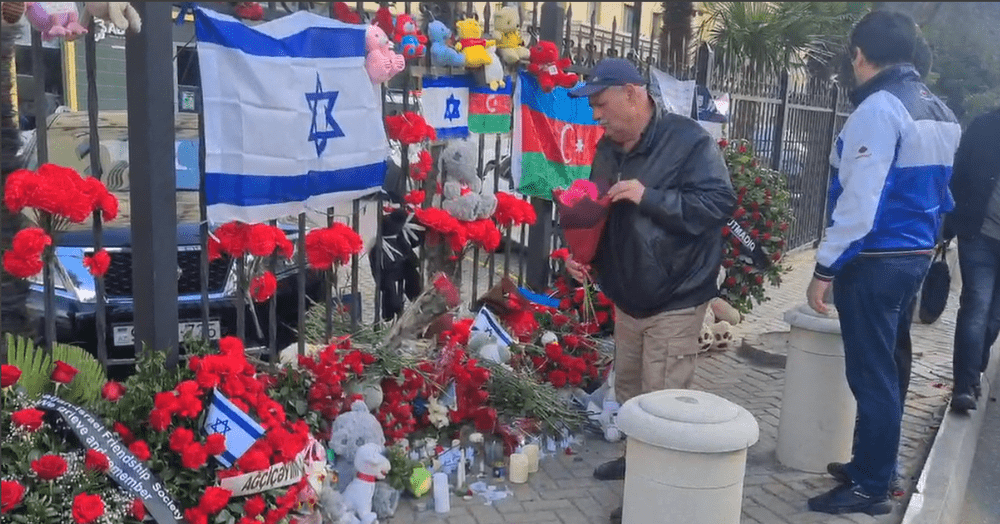
This approach reflects Azerbaijan’s secular political culture. The state deliberately controls religious expression in public life but prioritises strategic interests over faith-based solidarity. The leadership views stability, territorial control, and regional influence as higher priorities than aligning with pan-Islamic positions. By treating religion as a private rather than political force, Azerbaijan can justify ties with Israel even while images from Gaza dominate international media. Rovshan Mammadli, a Baku based journalist, has reported a “de facto ban on protests against Israel” by the government.
The paradox lies in perception. To the wider Muslim world, solidarity with Palestine represents a unifying cause and a symbol of resistance. To Azerbaijan, solidarity with Israel secures weapons, oil markets, and intelligence cooperation, while reinforcing its strategic stance against Iran. This divergence exposes fractures within the narrative of Muslim unity, demonstrating that religious identity does not dictate foreign policy outcomes when material and security considerations dominate.
Trump and the future of the alliance
The United States has amplified Azerbaijan’s partnership with Israel through renewed diplomatic initiatives. A peace agreement between Armenia and Azerbaijan which was signed on August 8th, took place in Washington, with US President Donald Trump presenting himself as a central broker. The deal not only ended decades of hostility in the Caucasus but also created a new strategic corridor, sometimes described as the “Trump Route,” that repositions Azerbaijan as a pivotal regional player. Azerbaijan’s President Ilham Aliyev said in response, “President Trump in six months did a miracle.”
Trump’s involvement resonates with his earlier role in the Abraham Accords, which integrated several Arab states into open relations with Israel. Analysts interpret Azerbaijan’s consolidation of ties with Israel as an extension of this framework, even though Baku never formally joined the accords. The symbolism remains clear: Azerbaijan aligns itself with a US-led strategy that binds regional actors to Israel in defiance of growing global criticism.
This diplomacy also shields Azerbaijan from isolation. As European states prepare to recognise Palestine and distance themselves from Israel, Baku strengthens its links to Washington and Tel Aviv to counterbalance that trend. On March 6th, Israeli Prime Minister Benjamin Netanyahu’s office implied that a unity of relations between the three states is underway. The office said Israel is working to establish “a solid framework for trilateral cooperation between Israel, Azerbaijan, and the United States.”
Hence, by attaching itself to American mediation, Azerbaijan projects legitimacy, secures continued military assistance, and ensures oil exports retain stable markets in Israel and beyond.
Looking forward, this partnership may face tests. Rising global recognition of Palestinian statehood increases pressure on Muslim-majority countries to unite against Israel. At the same time, Azerbaijan’s reliance on Israeli weapons and intelligence binds it tightly to Tel Aviv’s security framework. The outcome could make Baku one of Israel’s last consistent allies in the Muslim world, a position that underscores the primacy of realpolitik over ideology in its foreign policy.
The trajectory of this alliance therefore highlights a broader truth. As Azerbaijan deepens ties with Israel under American support, it demonstrates how states can pursue survival and strategic advantage even while defying religious solidarity and global opinion.
Ultimately, Israel-Azerbaijan relations not only shape the Caucasus but also challenge assumptions about Muslim unity in an age of shifting global alliances. All the while, continued alliances with Israel from other world powers make any possibility of halting Israeli actions within Gaza increasingly unlikely.
Maghrebi.org, BBC, AP, Al Jazeera, OC Media, Jordan Center for the Advanced Study of Russia, Middle East Eye, The Guardian, The New Arab plus
Want to chase the pulse of North Africa?
Subscribe to receive our FREE weekly PDF magazine









